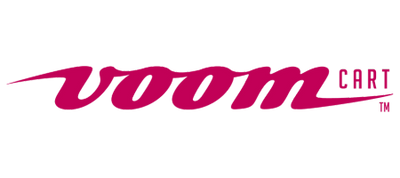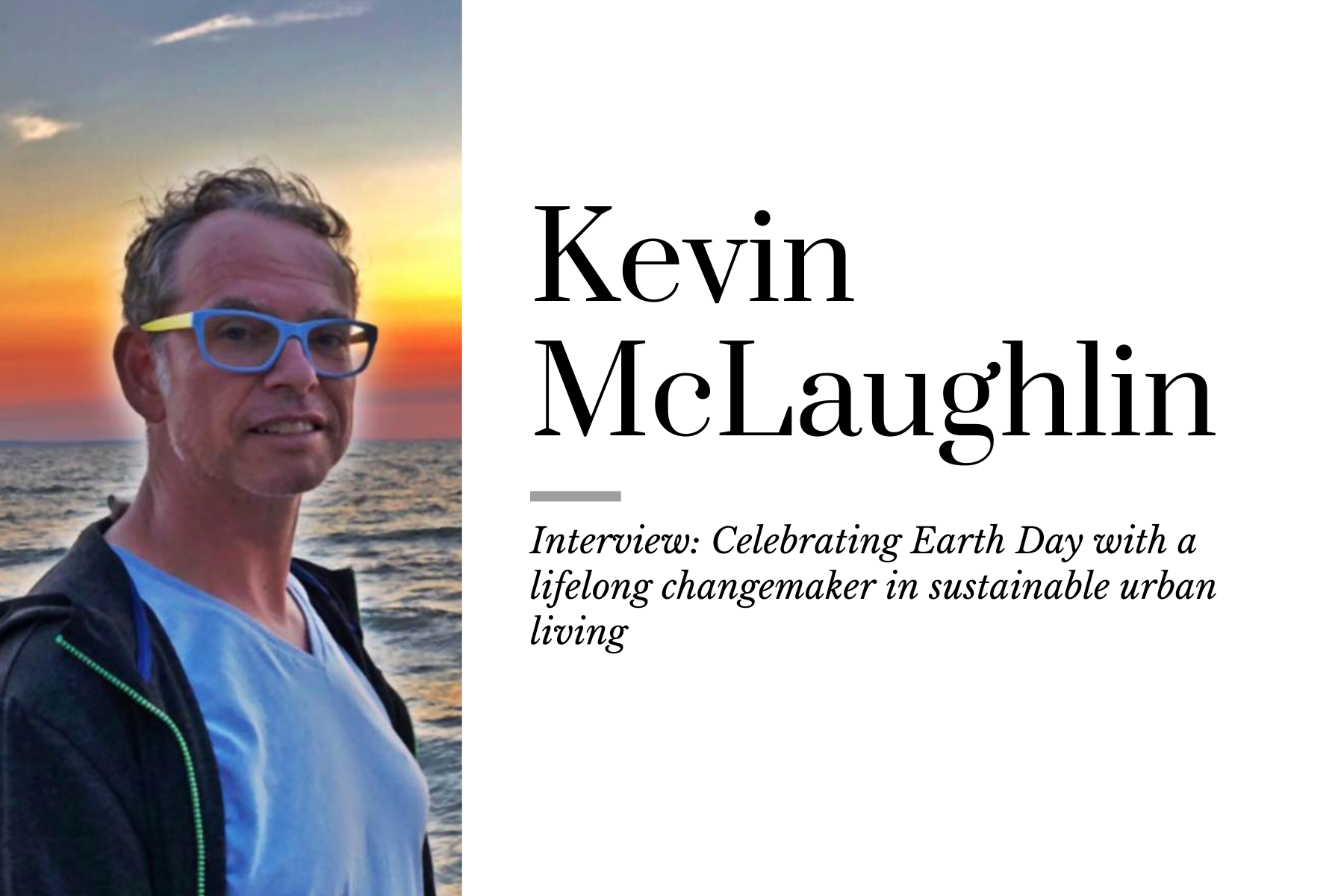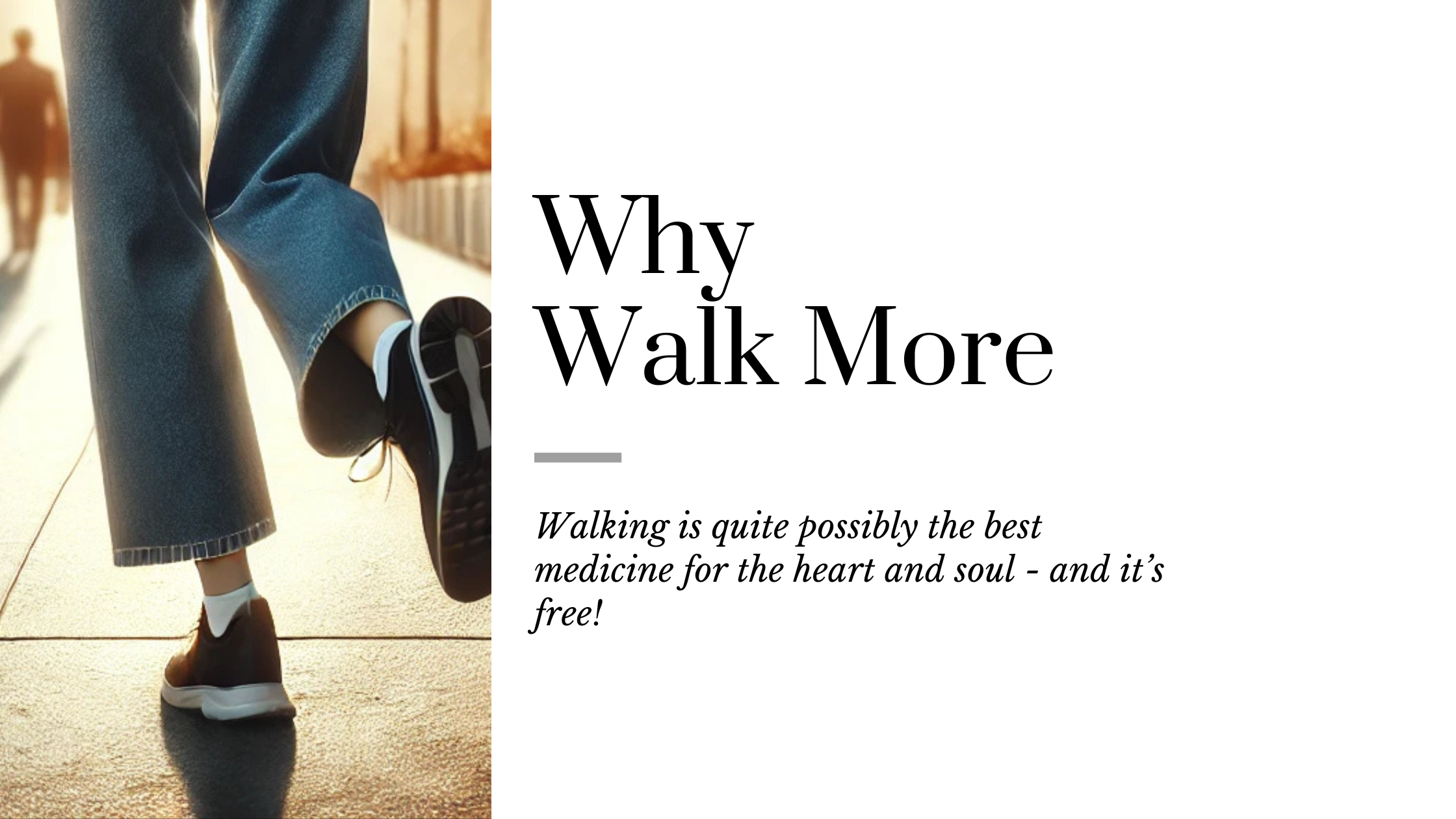In honour of Earth Day, VOOMcart is shining a light on Kevin McLaughlin—a true visionary who’s spent his career reimagining urban transportation and public spaces to be greener, smarter, and more community-focused. A serial entrepreneur with a real knack for making change, Kevin has left a lasting mark in every space he’s touched. His work has sparked decades of hands-on action, while also making it easier—and more economically sensible—for people to participate in eco-friendly initiatives, often without even realizing they’re helping the planet.
Erin - Kevin- I first met you in 1994 when I was a clothing vendor at The Tragically Hip's

Roadside attraction and you were donning a green tree costume promoting Evergreen Foundation - a national non-profit aimed at integrating nature into urban settings. You were clearly motivated to raise awareness to your cause, and the Evergreen Brickworks continues today to be a beacon of green advocacy in the middle of Toronto.
Erin - Where did you find your passion for environmental advocacy?
Kevin - After graduating in ’89, I spent a year traveling. It was 1990—Earth Day’s 20th anniversary—and I met Europeans who were really tuned into the environmental movement. In Indonesia, I saw firsthand how waste was handled during a time of economic transformation—everything from plastic to banana peels were just thrown on the ground. In Thailand, I saw mountains of water bottles piled up and against a tropical paradise and thought: what’s the real impact of all this plastic?
I came home changed. I had planned to go into real estate development, but those experiences shifted my perspective. Around that time, I met Geoff Cape, who was working on Evergreen. It was grassroots then, but I saw the potential—and knew I wanted to be part of that kind of change.
Erin - How did you know this was your calling?
Kevin - I just knew I wanted to make a difference—being an environmentalist was now part of me. After leaving Evergreen I moved to Vancouver, and tried on a few different hats before landing in the sustainable transportation space. At one point, I filed a lawsuit to stop the city from redeveloping a golf course—it just felt totally reckless from an environmental point of view. Around that time, I also thought maybe I’d become an eco-journalist, and be in the media telling the stories, exposing the bad actors. That career path didn’t pan out but it was all part of the journey that brought me to where I am now.
Erin - Next up, in 1998, you launched Toronto’s very first car-sharing service—AutoShare. It was a smart, practical move to help cut down on traffic and emissions in the city. Definitely a bold idea that pushed against the norm—and I imagine it came with its fair share of hurdles.
Erin - What was your a-ha moment that sparked the idea to take on something so ambitious?
It really started when I read about car-sharing in other cities—I was intrigued. Then, at a transit meeting, I saw a woman who had posted a note asking if anyone wanted to start a car-share co-op. I had a bit of exposure to the concept, so I put my hand up—and I was the only one who did. That’s how we started a co-op in Vancouver, which still exists today as Modo.
Later, I moved to Toronto and started AutoShare. I became really focused on transportation. It felt like a grassroots way to tackle a big part of the environmental problem—cars. I wanted to give people a real alternative to owning one. Something that felt like a choice, not a sacrifice.
Erin -Was there a point when you realized, “Wow, this is actually working the way I hoped it would”?
Kevin - Car sharing has definitely faced challenges—especially in the U.S.—but in Canada, it’s been a different story. It’s grown steadily, and services like AutoShare have shown that it can work. No, it hasn’t taken millions of cars off the road, but it exists, it’s viable, and it’s making a difference. That alone is a win.
Still, it’s frustrating at times. Some city councillors don’t fully buy into car sharing as a real solution to congestion or our car-heavy culture. Even after all these years, there’s still red tape and resistance, and that can slow progress.
I think of change like planting a tree—you start with one, then realize it might not be the right fit, so you plant a better one. Eventually, others join in. Over time, it grows into something bigger, and that’s when questions of social equity start to emerge. But the higher up you try to solve the problem, the more complex and political it gets—and that can really discourage activists and innovators.
For me, I love the puzzle of it all—figuring out how to make cities work better.
Cities like Paris are showing it is possible—by investing in transit and active transportation, they’re cutting emissions and improving quality of life. That’s the kind of impact I’m always working toward.

Erin - Your current venture - Zygg, is Canada’s first subscription-based e-bike service, now rolling in Toronto and Vancouver. By removing the upfront cost and covering maintenance, Zygg makes e-bikes way more accessible—not just for everyday commuters, but also for the thousands of delivery riders who rely on efficient, affordable transport. It’s a real game-changer for how people get around in the city.
Erin- As an urban cyclist and commuter yourself, you’ve had a front-row seat to how the city’s transportation landscape has evolved. How have you seen things shift, and how has Zygg helped open the door to active transportation for more people?
Kevin - When we started Zygg, e-bikes weren’t nearly as common as they are now. We were part of that early wave pushing for new ways to move through the city. Then COVID hit, and oddly enough, it gave people a chance to experience their city differently—fewer cars, quieter streets, and the freedom to bike or walk without feeling at risk. People loved it. You could feel the difference—more smiles, more movement, more connection.
But the challenge is, our city still clings to the idea that cars should be the default way to get around. Real change has to start with better transit and making space for people—whether they're walking, biking, or rolling. Shared spaces can be tricky, and the politics of it all can make progress feel slow. But when we do get it right, everyone feels the benefits. You can see it and feel it in the energy of the city.
Erin - And looking ahead—where do you see urban transportation going next?
Kevin - It has to start with public transit. If we want cities to move properly, we need to make bold decisions that prioritize moving lots of people efficiently. Once that’s in place, it becomes easier for car sharing, biking, and other modes to fit into the mix.
Look at Paris—when they reduced the dominance of cars, they saw a real drop in air pollution and a big improvement in quality of life. It all started with rethinking transit and making space for people, not just cars.
The same goes for bike lanes—every time we build them, they fill up right away. But now we have all kinds of people moving at different speeds on different types of vehicles, and we need infrastructure that can support that. That also means setting and enforcing clear rules—whether you're driving, biking, or riding a scooter. Everyone has a part to play in making the system work.
Erin - How do you feel VOOMcart fits into the suite of active transportation options for cities? How do you enjoy VOOMing?
Kevin - I love it—it’s a game changer, especially since I don’t have a car. I use VOOMcart in dolly mode on the way to the store, then load it up for the walk home. It gives me the freedom to shop without worrying about how much I’m carrying. I almost always buy too much when I don't have it and I certainly don't have a fun walk home. Honestly, it feels like having a car—but better. No parking, no traffic, just the freedom to move through the city with ease. It also allows me to make multiple stops without getting in and out, with multiple parking issues. Plus, it always sparks fun conversations because it's unlike any other personal cart out there!
Erin -Kevin McLaughlin exemplifies how business acumen can be harnessed for environmental good. His ventures—Evergreen, AutoShare, and Zygg—reflect a consistent dedication to creating sustainable, community-oriented solutions that address urban environmental challenges. We feel honoured that Kevin was not only a mentor to the team at VOOMcart, but is also an early adopter.
Thanks Kevin!




